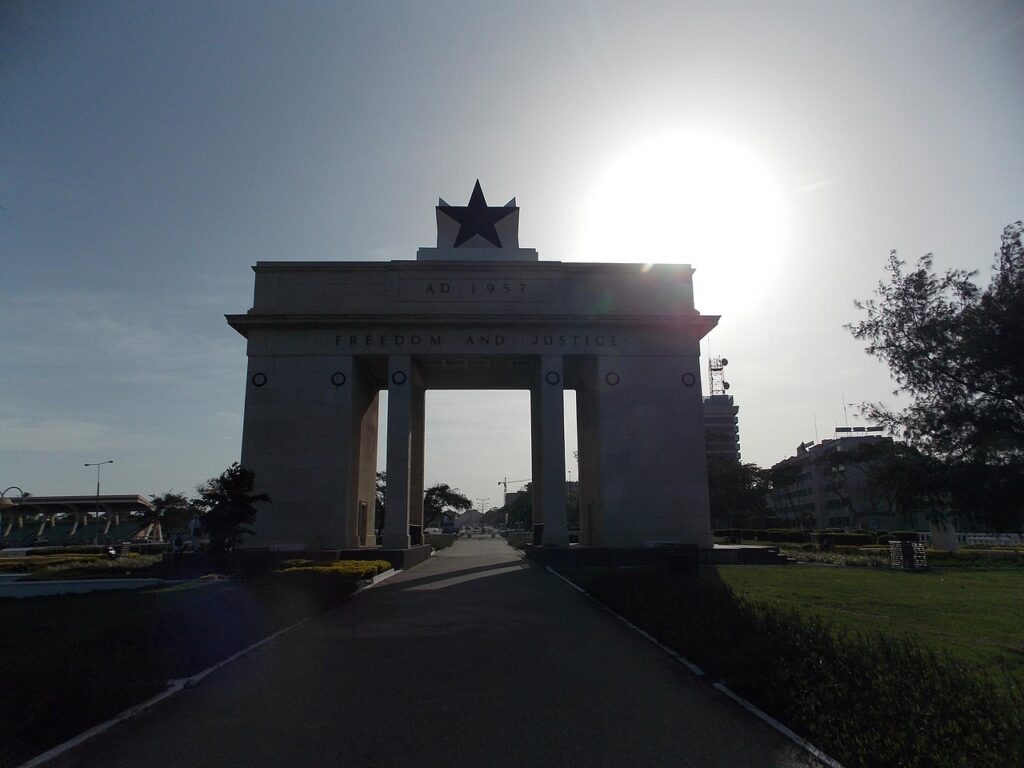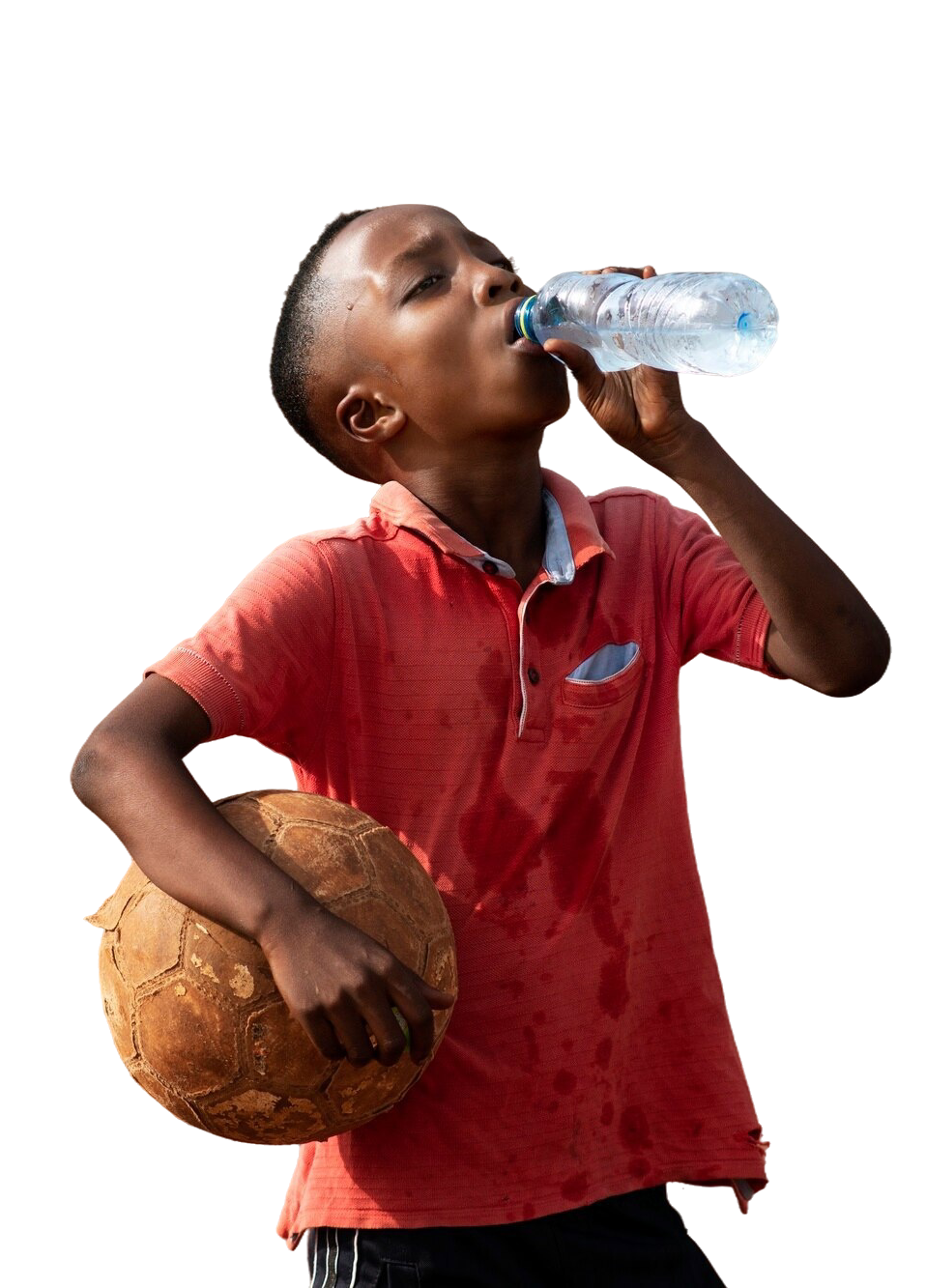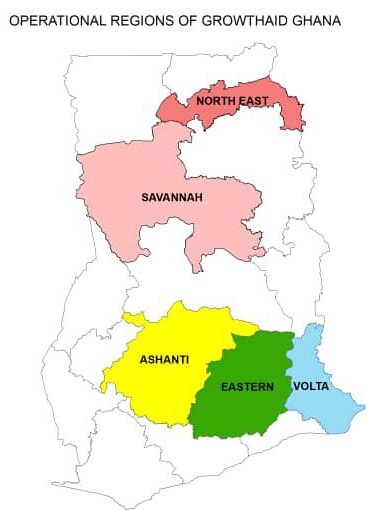GrowthAid Head Office Off DEVTRACO Courts Road Digital Address: GN-0489-5668 Community 25, Tema
- Office Main line: +233 30 820 4534
- Direct Line : +233 30 819 0146
- Tel: 030 320 9006
- info@growthaid.org
Ghana, a country of over 33 million people, continues to face critical challenges in water, sanitation, and public health particularly in its northern and rural regions. Despite progress, millions still lack access to basic and safely managed WASH services, especially in schools, healthcare facilities, and hard-to-reach communities. These gaps contribute to persistent health risks, increased school absenteeism, and preventable disease transmission.
The burden of Neglected Tropical Diseases (NTDs) remains high in the northern and coastal belts, with women, children, and people living in poverty disproportionately affected. Inadequate WASH infrastructure, poor hygiene practices, and weak health systems deepen the cycle of disease and marginalization.
At GrowthAid Ghana, we view these intersecting challenges not as obstacles, but as a clear call to action. Through gender-responsive, climate-resilient, and community-led WASH, health, and livelihood interventions, we are committed to transforming lives, from vulnerability to resilience, and from exclusion to dignity.


We deliver inclusive, climate-resilient WASH solutions in Ghana, focusing on the needs of vulnerable populations . Adhering to national and WHO standards, we treat and monitor water quality . Our SWE program empowers households to test, treat, and safely store water. We engage communities in planning, implementation, and maintenance of WASH interventions . We promote hygiene through education and campaigns . Sustainable sanitation solutions, like accessible latrines, are prioritized . Collaboration with government and partners ensures effective WASH systems . Continuous monitoring and evaluation inform our strategies .


We deliver inclusive, climate-resilient WASH solutions in Ghana, focusing on the needs of vulnerable populations . Adhering to national and WHO standards, we treat and monitor water quality . Our SWE program empowers households to test, treat, and safely store water. We engage communities in planning, implementation, and maintenance of WASH interventions . We promote hygiene through education and campaigns . Sustainable sanitation solutions, like accessible latrines, are prioritized . Collaboration with government and partners ensures effective WASH systems . Continuous monitoring and evaluation inform our strategies .

Our NTD elimination strategy aligns with the Ministry of Health and WHO’s NTD Roadmap, aiming for control by 2030 . It integrates WASH via eco-friendly infrastructure such as boreholes and gender inclusive laterines and hygiene promotion to cut transmission risks . Our health education uses tailored materials in schools and radio to reach at-risk groups. Community mobilization employs local committees, drawing from Ghana’s CHPS model. Endemic regions are targeted with mapping. Inclusion, behavior change, and capacity building ensure equity . Monitoring ensures long-term impact . Challenges remain, including volunteer motivation and resource gaps . The strategy prioritizes integrated approaches and local ownership . Ghana has eliminated trachoma and guinea worm, demonstrating progress .
Our approach enhances community resilience in Ghana by integrating income-generating pathways for women and youth . We provide vocational training in fields like dressmaking, hairdressing and Soap making, along with resources and mentorship . We integrate WASH principles into enterprise development, supporting businesses that promote hygiene. Nutrition-sensitive agriculture is promoted through the production of nutrient-rich crops and waste reduction strategies. We prioritize women and youth, ensuring access to decent work and financial services. Collaboration with local entities and alignment with SDGs are key. Continuous monitoring and evaluation inform our strategies for effective and sustainable community-driven programs .


Our approach enhances community resilience in Ghana by integrating income-generating pathways for women and youth . We provide vocational training in fields like dressmaking, hairdressing and Soap making, along with resources and mentorship . We integrate WASH principles into enterprise development, supporting businesses that promote hygiene. Nutrition-sensitive agriculture is promoted through the production of nutrient-rich crops and waste reduction strategies. We prioritize women and youth, ensuring access to decent work and financial services. Collaboration with local entities and alignment with SDGs are key. Continuous monitoring and evaluation inform our strategies for effective and sustainable community-driven programs .

We advocate for inclusive systems by engaging stakeholders in WASH, health, and nutrition policies. Our community-led initiatives amplify the voices of underserved populations, aligning with Ghana’s NTD elimination efforts. Guided by the Ghana NTD Master Plan (2021–2025) and the NTD Sustainability Roadmap (2022–2026), we support integrated and sustainable interventions. Our goal is to eliminate NTDs by 2030, in line with WHO guidelines. We collaborate with government, civil society, and international partners to ensure evidence-based policies. This approach addresses the needs of vulnerable communities through decentralized strategies. Continuous engagement fosters effective implementation of health initiatives. Ultimately, we aim for a comprehensive and resilient health system.

We advocate for inclusive systems by engaging stakeholders in WASH, health, and nutrition policies. Our community-led initiatives amplify the voices of underserved populations, aligning with Ghana’s NTD elimination efforts. Guided by the Ghana NTD Master Plan (2021–2025) and the NTD Sustainability Roadmap (2022–2026), we support integrated and sustainable interventions. Our goal is to eliminate NTDs by 2030, in line with WHO guidelines. We collaborate with government, civil society, and international partners to ensure evidence-based policies. This approach addresses the needs of vulnerable communities through decentralized strategies. Continuous engagement fosters effective implementation of health initiatives. Ultimately, we aim for a comprehensive and resilient health system.

Our SWE Approach boosts local capacity and reduces waterborne diseases, making clean water a sustainable reality for thousands.

Founder & CEO

Regional Support Officer

Finance & Administration Manager

Programs Officer

Admin & Finance Officer

Admin & Finance Officer

Logistics Officer

Administrative Assistant
Bridging the Gap in Ghana’s Hard-to-Reach Regions
Reaching Ghana’s Most Underserved Regions
GrowthAid Ghana operates across the country’s most WASH-deprived and health-vulnerable regions. Our work is concentrated in areas with high disease burdens, fragile health systems, low access to safe water and sanitation, and populations of displaced people

GrowthAid Head Office Off DEVTRACO Courts Road Digital Address: GN-0489-5668 Community 25, Tema
How GrowthAid is Scaling Climate-Resilient WASH Through Investable Infrastructure
For over 20 years, GrowthAid has delivered water, sanitation, health, livelihoods, and climate-resilient development in underserved communities across West and east Africa. We are now deliberately evolving beyond traditional project delivery with a humanitarian lens to an asset-based approach with predictable cashflows capable of attracting blended and catalytic finance.